Corn Insects
All Corn Insects Content
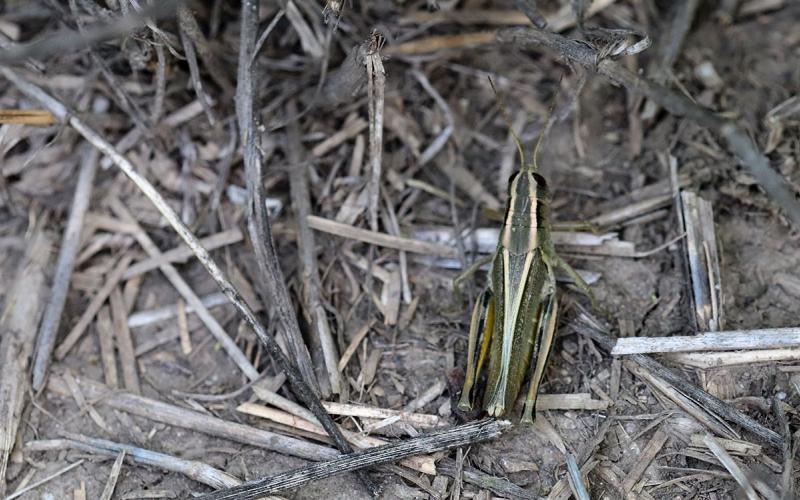
Will Grasshoppers Be an Issue in 2021?
With much of South Dakota experiencing dry conditions this year, grasshoppers are one of the insect pests that will need to be monitored. Large grasshopper populations may cause economic loss in cash crops and reduce forage in range and pasture lands.
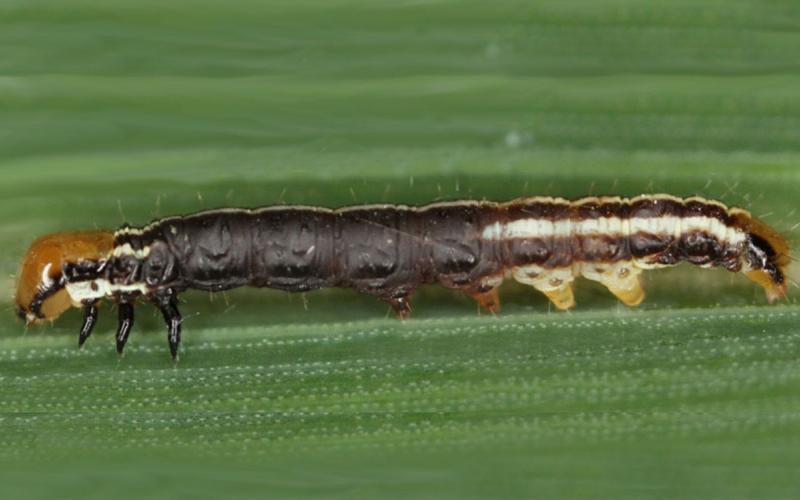
Common Stalk Borer Activity Estimate: June 10, 2021
The hot temperatures last week have resulted in a large increase in degree days for common stalk borer. Common stalk borers should now be scouted for in areas around Hot Springs, Lemmon, Mission, Pierre, Winner, Huron, Mitchell, Tyndall, Sisseton and Vermillion.
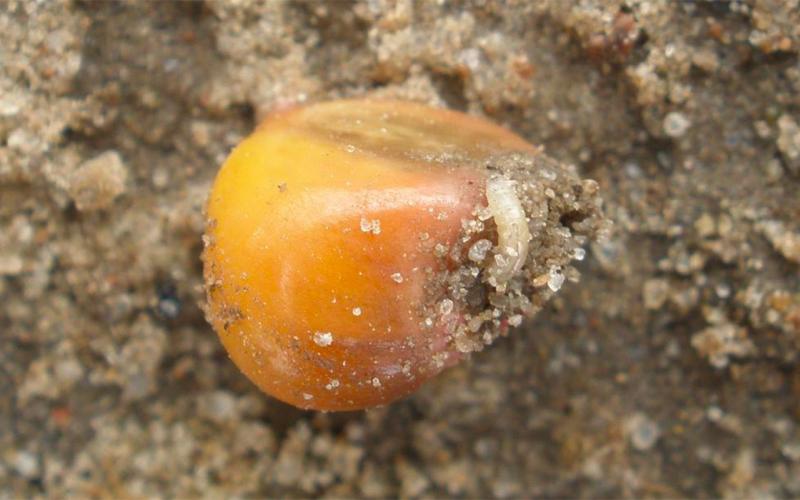
Seedcorn Maggot Degree Day Activity Estimates: June 3, 2021
We are currently between the second and third generation peak emergences in South Dakota. Seedcorn maggot management must be done before planting, or the populations can be avoided by not planting during times of peak emergence.
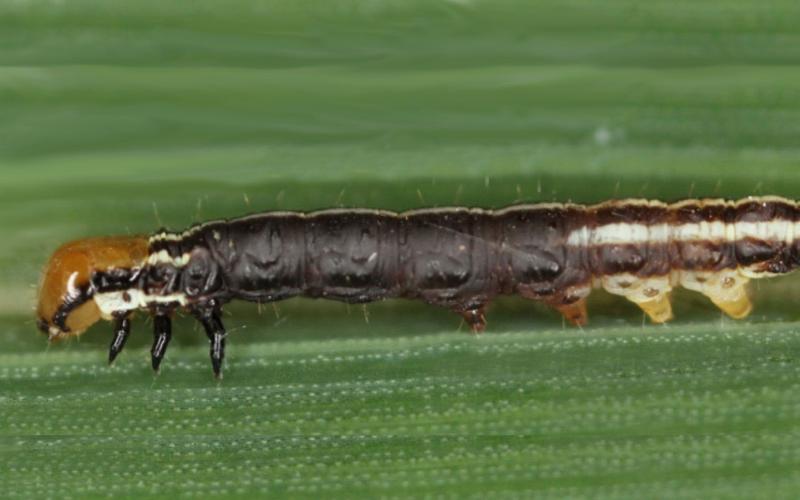
Common Stalk Borer Activity Estimate: June 3, 2021
We still haven’t reached the degree day accumulation levels to see common stalk borers moving into corn fields. However, if weeds and grass are sprayed out along field borders, there is a very high probability that they will be forced into corn early.
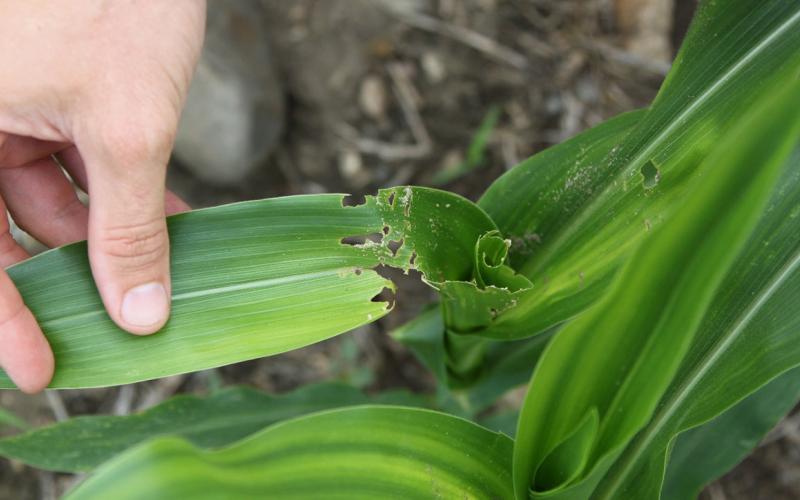
Common Stalk Borers Observed in South Dakota Corn
While scouting corn this week, clear signs of common stalk borers were observed. Although our degree day estimates indicate that common stalk borers probably aren’t moving into corn yet, they can be forced into corn fields in certain situations.

Common Stalk Borer Activity Estimate: May 27, 2021
Throughout South Dakota, we still haven’t accumulated enough degree days for common stalk borers to begin moving into corn, which is a good thing. At this point in time, common stalk borer activity is still going to be limited to weeds and grassy weeds.

Seedcorn Maggot Degree Day Activity Estimates: May 27, 2021
In South Dakota, we have accumulated enough degree days across the state that the peak emergence of the overwintering seedcorn maggot population has passed. In most of South Dakota, we are at peak emergence of the second generation or slightly past it.

Seedcorn Maggot Degree Day Activity Estimates: May 20, 2021
Seedcorn maggots can be an early-season pest of corn and soybean in South Dakota, typically affecting crops that are emerging or have recently emerged. Seedcorn maggots can cause direct loss by destroying planted seeds.

Common Stalk Borer Activity Estimate: May 13, 2021
The upcoming weather forecast looks warmer than the last few weeks, and that means we will begin to accumulate degree days for the common stalk borer at an increased rate.

Common Stalk Borer Activity Estimate: April 29, 2021
As temperatures continue to warm up, degree days are beginning to accumulate a little faster for common stalk borers. Most of South Dakota is still between conditions approaching egg hatch and egg hatch occurring.